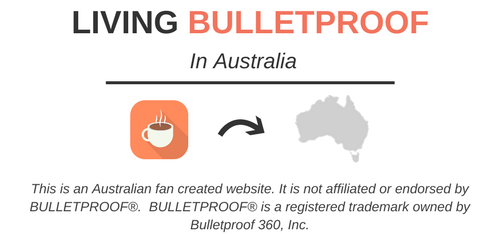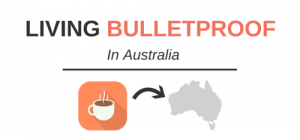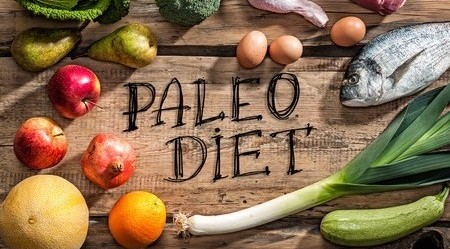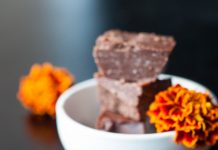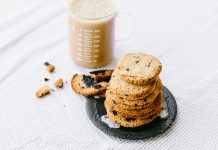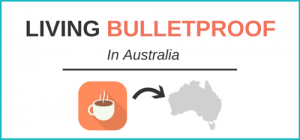This post on “Why Paleo Really Works” was originally published on True Foods Nutrition. Maria Shaflender is a Clinical Nutritionist from Bondi, Sydney.
Enter Maria:
Paleo has got a lot of press – most of it negative. It has even reached mainstream TV (thanks to Pete Evans:). Paleo has come under a lot of criticism in the media recently and much misinformation is being spread both by popular media as well as conventional doctors and researchers.
Is Paleo for Everyone?
As many of you are aware, I follow a largely Paleo/ancestral diet because it works for me, my family and many of my clients. I use the ancestral ‘template’ in clinic and customise the dietary approach to suit the client’s health/lifestyle/ancestry/genetics and many other factors.
Is Paleo for everyone? My answer would have to be ‘No’. This is where I diverge from Nora Gedgaudas and Pete Evans and go more with the views of Chris Kresser, a functional medicine practitioner from the US who adopts a more ‘moderate’ approach.
My clinic experience is telling me that there are some people (not many, but they do exist) who do very well on unprocessed dairy. And there are definitely people (quite a few) that simply need grains in their diet. These people start losing very unhealthy amounts of weight and energy when they cut grains and legumes out completely. So my advice to these people is to eat only gluten-free, whole and organic grains that are prepared traditionally (soaking, sprouting and fermenting) and ideally cooked in bone broth:).
I also find it unmanageable and unnecessary for children to be completely grain and legume free. Children need more carbs, as simple as that. My kids don’t eat grains often, but 3-4 times a week (especially when they’ve been very active) they will happily eat some organic basmati rice (cooked in the above-mentioned broth) and some home-made hummus.
Having said that, for the majority of adults, especially those with existing health conditions, excess weight and poor diet – I do firmly believe that people’s health VASTLY improves when they switch to a Paleo lifestyle from their current ‘standard Australian’ diet.
What is it about Paleo that works for people?
How exactly are so many people not just losing weight but regaining their health including control over long-standing serious health conditions such as diabetes, rheumatoid arthritis, chronic pain and many others?
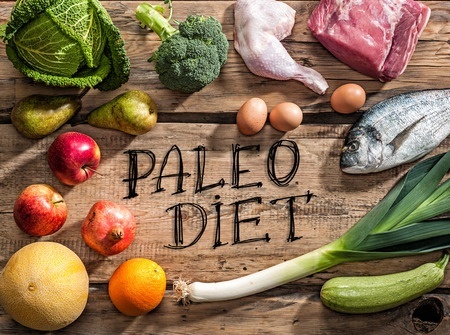
To answer the WHY, we need to look at what the Paleo diet removes from the common diet and what impact that has on people’s health.
What it removes are sources of inflammation- simple and profound.
Our modern health conditions are prevalent today largely because of this underlying source of inflammatory action in the body, driven by our immune system that attacks things that don’t belong (read more about this here).
What Paleo removes are key sources of inflammation
1) Wheat and other grains
Gluten is the devil. No really, it is. If there was only one food constituent that could be removed entirely from our food supply with the biggest population wide benefit, gluten would be it. More than alcohol, more than sugar. The amount of damage that modern gluten causes to our intestinal tract is quite astounding. If you want to do more research into this (and trust me, I have spent many, many hours on gluten research) have a look into the work of Dr Alessio Fasano (a top paediatric gastroenterologist in the US) and Dr Aristo Vojdani (the leading immunologist in the world).
Simply put, gluten triggers a molecule called zonulin in our small intestine, triggering the opening of tight junctions (the cells that hold the gut together) and creating intestinal permeability (aka ‘leaky gut’). This allows undigested food particles of gluten (and dairy, and whatever you can’t properly digest) to enter the blood stream and trigger an immune attack in susceptible individuals. How many are susceptible? 75% of the population. Yes, 75% of the population have a genetic variation that predisposes to this process. Not coeliac disease, but this ongoing, inflammatory autoimmune cascade. This is why Paleo benefits people- it removes gluten.
Regarding other grains- our lack of proper preparation (soaking and sprouting/fermentation) renders a lot of them undigestible at best and harmful at worst because phytic acid in grains binds vital minerals like zinc, calcium and iron making them very difficult to absorb. Add to this the higher than needed carbohydrate amounts in grains and you get an overfed population with insulin spikes driven by over-consumption of grain.
2) Sugar and processed foods
I don’t need to explain this one to you: sugar is inflammatory in every sense because it triggers an insulin spike and every time there is too much glucose in the blood stream, that glucose is inflammatory- it oxidises haemoglobin. This is why a key marker measured in the blood of diabetic patients is HBA1C- glycated haemoglobin. Advanced glycation end products (AGEs) are inflammatory and oxidising (aging). By cutting out sugar, especially processed sugars, Paleo cuts out this form of inflammation.
Processed foods require no explanation- anything that has a shelf life of more than a couple of weeks, has more than a couple of ingredients, has ingredients you can’t pronounce has no business being on your plate – with Paleo, there is no room for processed foods.
3) Modern dairy
There is much debate in the scientific literature on nutrition regarding dairy. Many large scale studies show benefits from dairy for blood sugar control, diabetes and even heart disease. This is where I think quality is really important. Fermeted probiotic yogurt and kefir made from fresh raw milk from pastured cows is a very different food compared to supermarket milk from antibiotic and hormone fed cows. This is where genetics and health conditions come into play. A lot of dairy intolerance I see in clinic is genuine dairy intolerance to casein, unfortunately present regardless of the quality of dairy the person consumes.
People who can’t tolerate dairy suffer from many inflammatory conditions such as respiratory issues including asthma (an autoimmune, inflammatory condition), digestive discomfort and others. In my clinic, dairy is problematic for a large percentage of people and can particularly cause issues with hormones. This article explains the inflammatory role of dairy in hormonal health very well.
Many people on Paleo remove dairy (myself included) and see many health benefits.
What Paleo adds to a regular diet
1) Vegetables
Tons of them. A surprisingly high number of my clients think that they already eat ‘lots’ of veggies. Until I ask them to do a food diary and it turns out that yes, they are eating vegetables- a tomato and a cucumber with their dinner. Maybe a potato. Maybe salad in their lunchtime sandwich. This my friends, is NOT eating vegetables!
Our ancestors would have eaten 10 times as many veg as we do today, with a much greater variety, not sprayed with pestiticides. Fresh, cooked and fermented, these veg would have given us valuable fibre, minerals, vitamins and probiotic organisms.
What Paleo adds to the diet is several cups of vegetables throughout the day- not just dinner, but for breakfast and lunch too. Grains are replaced with colourful and leafy veg and this adds enormous benefits to the diet. People’s digestion improves within days, headaches disappear and they can start to think clearly.
2) Healthy fats
Paleo replaces processed vegetable oils (canola, soy, peanut, sunflower) with healthy and stable monounsaturated and saturated fats of olive oil and coconut oil. Safe for cooking and high in antioxidants. Avocadoes, nuts, seeds- all staples of our diet for millennia.
What we don’t realise often is that every cell in our body is made of a phosphoLIPID layer- a fat layer. This allows the cell to let nutrients in and waste out- it’s a flexible, fluid layer. Some renowned researchers believe that this is actually the ‘brain’ of the cell, not the nucleus as previously thought, but the membrane is what communicates with our environment and is so vital for our health (learn more about this fascinating topic here).
When we eat rancid and processed fats (eg: the vegetable oil that chips are fried in) it is these fats that embed themselves in our cell membranes, making them less fluid and derailing the very function of our cells, causing a build up of toxic waste inside each cell. This is inflammation and obesity- the body’s way of storing what is harmful to us away in fat cells.
3) Lean Protein
I specifically left protein to last, because so much misinformation exists about Paleo being a high protein diet. It is simply not true. The issue is that the last 40 years of low fat diet brainwashing have left many people not eating adequate protein. Many times a week I go through a client’s food diary and see only 1 portion of protein in a whole day! it’s usually eggs:). What we have, especially in our children’s diet is a vast lack of protein which is a building block for growth and muscle development.
Protein builds, vegetables cleanse- this is a simple way of thinking about it.
What we also forget is that protein is essential for making neurotransmitters- protein in food is a precursor to serotonin (the happy chemical) and melatonin (the sleepy chemical). Is it a surprise that we have epidemics of depression and insomnia!
Paleo is not about too much protein, it is about a small portion of protein with every meal, sustainably sourced, grass fed, wild caught and as fresh as possible. This is so fundamental to our survival that people really need to know! For those concerned about environmental sustainability of animal protein consumption, I suggest you check out the amazing work of Joel Salatin (farmer) and Alan Savoury (pioneer sustainability expert) as well as read this entertaining blog about the realities of vegetarian rhetoric and sustainable animal protein consumption.
So, I hope this look at Paleo has enhanced your understanding of the health benefits that this diet provides. If you need help personalising Paleo to your needs, you know who to call:).
-Maria from True Foods Nutrition
Maria is a fully qualified Clinical Nutritionist who runs a busy clinic in Bondi, Sydney. Maria uses a functional medicine approach to find the real causes of illness. She is a firm believer in the principle of ‘food as medicine’ and focuses on diet, nutrients and lifestyle when addressing the conditions of her patients. Contact Maria for a free 15 min phone ‘strategy session’ today: 0466 802 058. Check out her popular Workshops here.
Check out Maria’s upcoming Bone Broth workshop this June in Bondi!
